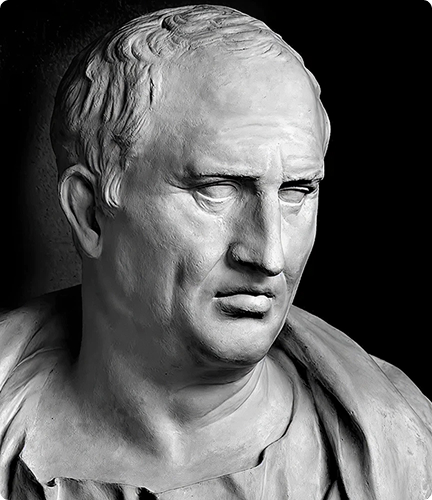Some voices simply speak. Others command you to listen. What sets them apart is auctoritas dicendi – the authority of speaking. This isn’t about microphones; it’s a silent force earned by credibility, presence, and genuine conviction that your words matter.
The Ancient Roots of Speech’s Power
Auctoritas in ancient Rome wasn’t merely influence; it was moral authority built on reputation and integrity rather than official rank. The Senate held auctoritas, while the emperor exercised potestas or legal power. One commanded respect, the other enforced laws.
Paired with dicendi — “of speaking” — this ancient phrase reveals a timeless truth for speakers. Real influence arises not from volume but from virtue and alignment of voice and character. It separates the orator who owns the stage from the one who simply occupies it.
What Auctoritas Dicendi Means in Today’s World
It’s the difference between empty chatter and words that endure.
Authority in speech comes not from loudness but from quiet confidence supported by four pillars:
- Credibility: You live what you speak.
- Clarity: Your message cuts through noise because it’s rooted in truth.
- Composure: You speak calmly, grounded in strength.
- Consistency: Your words match your actions, even when unseen.
When these elements align, speech becomes symbolic.
The Moral Weight of Words
Sun Tzu taught that the greatest victory is one won without battle. Similarly, the best orators persuade without shouting and inspire without manipulation.
Auctoritas dicendi reminds us that words carry ethical weight. Every speech reflects one’s internal order – discipline, empathy, and restraint. Listeners don’t just hear what you say, they sense who you are while saying it.
Cultivating Your Own Authority Today
Building this authority begins within, long before stepping on stage:
- Immerse in learning. Knowledge fuels confidence.
- Listen deeply. Understanding others is the soil where authority grows.
- Live authentically. Embody your message.
- Respect silence. Knowing when not to speak amplifies the impact when you do.
True authority flows naturally because speech becomes an extension of integrity, not a performance to impress.
The Timeless Lesson of Auctoritas Dicendi
From Cicero’s Senate to today’s digital livestreams, one thing remains constant – audiences trust authentic authority.
Auctoritas dicendi is the invisible crown worn by every credible speaker, a fusion of wisdom, ethics, and grace that cannot be forced, only earned.
Corresponding Instagram post
Some voices simply speak. Others command you to listen. What sets them apart is auctoritas dicendi – the authority of speaking.
It isn’t about microphones or titles, but a quiet strength built on credibility, presence, and conviction that your words matter.
In ancient Rome, auctoritas meant moral influence – power earned through integrity, not rank. The Senate had auctoritas, the emperor had potestas – legal power. One commanded respect, the other enforced laws.
Paired with dicendi (“of speaking”), it reminds us that real influence in speech comes not from volume but from virtue.
True authority in speaking rests on four quiet pillars:
- Credibility – You live what you speak.
- Clarity – Your truth cuts through noise.
- Composure – Calm is your confidence.
- Consistency – Your words mirror your actions.
When these align, your voice carries moral weight.
As Sun Tzu said, “The greatest victory is won without battle.” Likewise, the best orators persuade without shouting.
From Cicero’s Senate to today’s screens, audiences still trust one thing – authentic authority.







